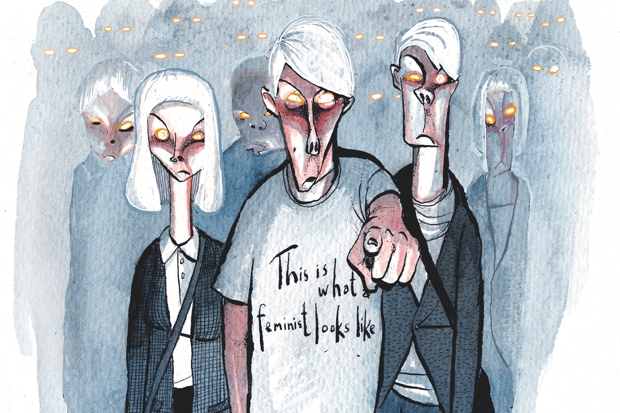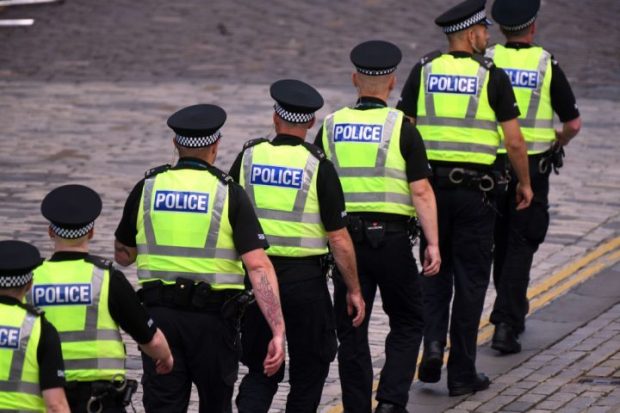You will know by now if Scotland has decided to go it alone. I don’t, because at time of writing the independence referendum is still a few days away, and despite having been in the UK for the last two weeks I’m no more able to predict the result than if I’d spent those two weeks in Bali. Nobody I’ve spoken to in London, Cardiff or Manchester has been prepared to have a serious punt either way. Ditto their newspapers, ditto the polls those newspapers have commissioned. There hasn’t been so much uncertainty about an important national issue here since the final of last year’s Britain’s Got Talent.
But while nobody can say what the result will be, there seems to be a broad consensus south of the border as to what it should be. In the last few days, we’re told, hundreds of thousands of English, Northern Irish and Welsh have tweeted, emailed and posted messages of solidarity to their sporran-sporting, haggis-munching, caber-tossing, disproportionately ranga cousins on the other side of Hadrian’s Wall. The Spectator has added its voice to this chorus by publishing a selection of those letters, and the cover of last week’s UK edition must be the soppiest in the magazine’s history; ‘Scotland, please stay’ in white type on a Saltire blue ground.
Having spent the first 25 years of my life in England I find this tsunami of brotherly love difficult to relate to, and can’t help thinking the Scots will take it as they reputedly take their porridge; with a lot of salt. For most of recorded history the two countries have been at each other’s throats, and their most recent conflicts – only 250 years ago – were amongst the bloodiest. Since then there have been some excellent bonding opportunities (World Wars I and II spring to mind) but anybody who’s ever attended an England v Scotland rugby match will tell you that the hatchet is far from buried. ‘Oh Flower of Scotland’ must be the only national anthem that’s also a song about unfinished business. Twickenham crowds being famously well behaved, the England fans maintain a respectful silence throughout and even applaud at the end. But it’s a different story up the road at Wembley, where a few days ago England football fans baffled their Swiss visitors by chanting ‘F–k off, Scotland, we’re all voting yes’ whenever the game slowed down. This attitude may be more prevalent at grass roots level than David Cameron or Gordon Brown would care to admit.
Because the truth is that for most English people, Scotland already is a foreign country. Global warming may well make it a more attractive destination in a few hundred years, but as of right now the vast majority of poms have never set foot in it and aren’t planning to any time soon. There are a few who visit on a regular basis; principally the luvvies who attend the Edinburgh festival and the toffs who like killing things. But for most ordinary poms, Scotland is just where whisky and shortbread and Andy Murray come from, and if it’s been on the radar a lot this year that’s probably less to do with the referendum than the Commonwealth Games. Before that, I bet most Englishmen and women thought about Australia more often than they thought about Scotland; at least Australians play cricket, too.
It’s tempting to look for parallels here with our own republican referendum in 1999, the result of which, I confess, took me rather by surprise. At the time I could only explain it by assuming that none of those who voted for the status quo could ever have spent any time in the Old Dart. Because it seemed to me that if they had, and seen what a lop-sided relationship it is – how marginal Australia is (or was then) in the lives of most Brits and how little attention it gets (or got then) in the British media – they would definitely have voted (as I did, since you ask) for Mr Turnbull & Co.
But further comparison is pointless. Whichever way Australia had voted back then it probably wouldn’t have made much difference to the day-to-day lives of ordinary Australians. As David Cameron has been frantically pointing out over the last few weeks, a ‘yes’ vote in Scotland will have huge and far-reaching economic and political consequences, and not just for the Scots. Directly or indirectly it will affect everybody in the United Kingdom – or whatever it will be forced to change its name to. It’s only recently that this penny has dropped for many English people. So it’s only recently that most of them started to take the referendum at all seriously. You can’t help thinking that self-interest, rather than fellow-feeling is behind an awful lot of those tweets and emails and letters.
The only person in London who doesn’t seem to care one way or the other is the woman who lives in that big house near Victoria station. ‘Don’t drag me into this, says Queen’ was the headline on the front page of the Times yesterday, above a shot of Her Maj looking as if someone had backed over one of her corgis. ‘Any suggestion that the Queen would wish to influence the outcome of the current referendum campaign is categorically wrong,’ said a quoted statement from Buckingham Palace. ‘Her Majesty is firmly of the view that this is a matter for the people of Scotland.’
Given that Her Majesty’s vast personal wealth derives in no small part from her great, great, great, great grandfather’s decision to dispossess the Scots of most of their land and divvy it up amongst his mates, her reticence on the subject is understandable, and perhaps commendable, too.
But maybe her furrowed brow in that photograph has a simpler explanation. Maybe she’s just wondering where she and her family will spend Easter from now on if Balmoral is no longer an option. We could help there. Now that Will and Kate have put the Australian republican movement on hold for another decade or so, their granny would be sure of a warm welcome down under. A warmer one than she’d get in most parts of Scotland, anyway – whatever time of year she went there.
Which reminds me of the time, many years ago, when the advertising agency I worked for in London was invited to pitch for what was then called The Scottish Tourist Authority. Everybody laughed when I suggested that the campaign we submitted should be built around the slogan ‘Scotland; you’re welcome to it.’
If the ‘yes’ vote has won, I doubt if anyone in London will be laughing now.
Got something to add? Join the discussion and comment below.
Get 10 issues for just $10
Subscribe to The Spectator Australia today for the next 10 magazine issues, plus full online access, for just $10.
You might disagree with half of it, but you’ll enjoy reading all of it. Try your first month for free, then just $2 a week for the remainder of your first year.














Comments
Don't miss out
Join the conversation with other Spectator Australia readers. Subscribe to leave a comment.
SUBSCRIBEAlready a subscriber? Log in